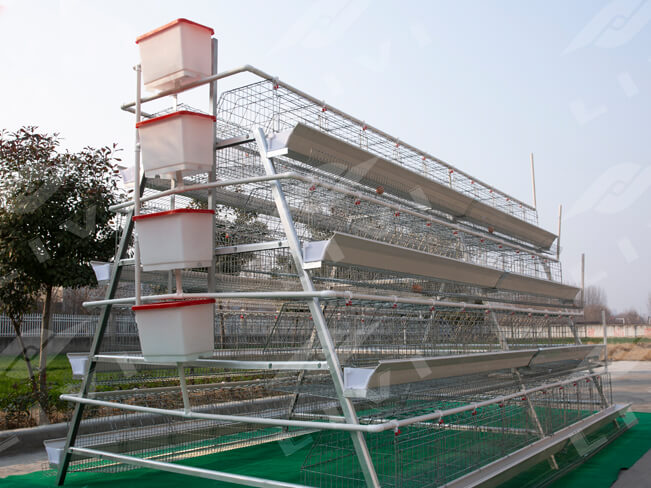Burkina Faso is a country located in West Africa, and agriculture is an important part of the country's economy. In recent years, farmers in the country have begun to use s battery chicken cages in Burkina Faso to raise poultry. This breeding method not only has a positive impact on farmers' income, but also has certain environmental benefits.
First of all, battery chicken cages in Burkina Faso can save land resources. Burkina Faso’s land resources are limited, and the traditional chicken coop farming method requires a large amount of land. The stacked chicken cages can stack the chicken houses vertically, which greatly reduces the floor space, saves land resources, and helps protect farmland and the natural environment.

Secondly, battery chicken cages in Burkina Faso help reduce pollutant emissions. In traditional chicken house farming methods, poultry feces and urine are concentrated together, which easily produces odor and pollution. The stacked chicken cage adopts a modular design, and each module has an independent feces discharge board, which can effectively separate feces and urine, reduce the generation and discharge of pollutants, and play a certain role in environmental protection.
Finally, battery chicken cages in Burkina Faso help reduce the spread of infectious diseases. In the traditional chicken house breeding method, poultry are prone to contact with each other, and the risk of spreading infectious diseases is high. The stacked chicken cages can raise poultry in layers, reducing the contact between them and reducing the incidence of infectious diseases. This is of great significance for protecting the environment and human health.
To sum up, Burkina Faso poultry cage farming method has environmental benefits of saving land resources, reducing pollutant emissions and reducing the spread of infectious diseases. This farming method helps protect farmland and the natural environment and improves the sustainable development of agriculture.









